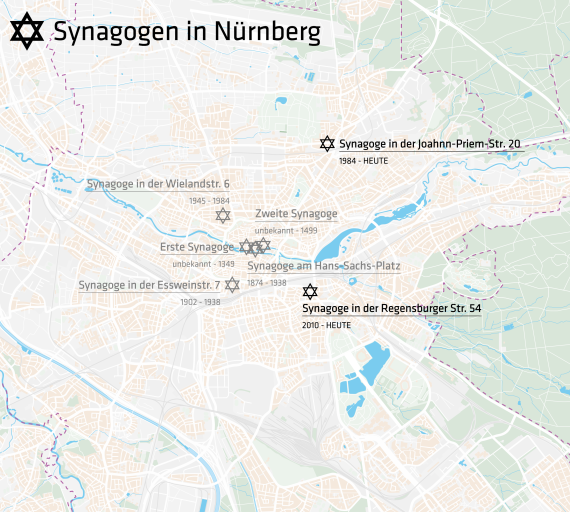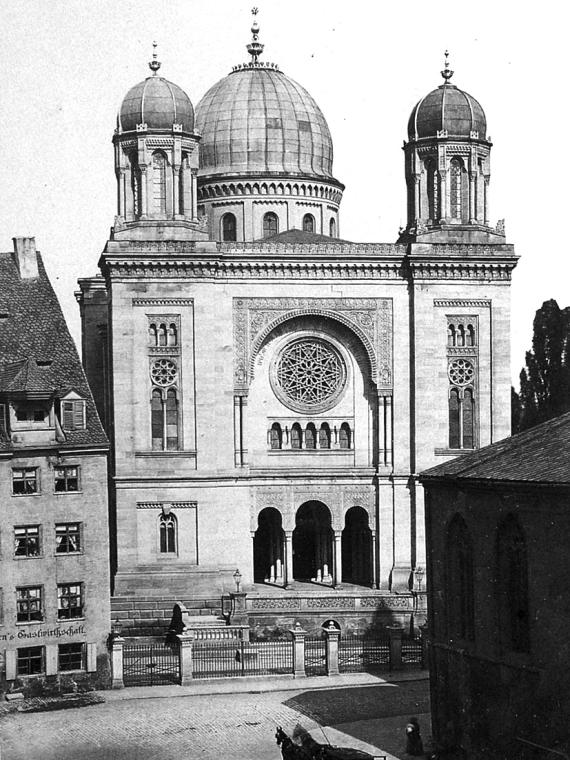The dating of the first Jewish life in Nuremberg is not clear. Both the year 1096 and the period from 1136 to 1146 are considered probable according to different sources. A document of Henry V (1111-1125) proves a Jewish community for the year 1112. The construction of a synagogue with associated mikvah in the 13th century suggests a certain prosperity of the community.
Growing resentment of the Christian population ensured that the community was punished with high repayments in the course of the so-called "beef riots" of 1298. By 1340 Jewish life had recovered to the point where it could now count over 1,000 members. This had been possible only by the "Judenschutz" (1313) of Henry VII (1312-1313), which, however, did not yet grant the Jews any civil rights, whereby they were also denied most professions.
Several pogroms were followed by the final expulsion in 1499. For the next centuries, no Jewish life was tolerated in Nuremberg, only their businesses were partially permitted. The Bavarian Jewish Edict of 1813 forbade foreign Jews to settle permanently. It was not until 1850 that the first Jew was granted Nuremberg citizenship, which resulted in an increase in the Jewish population and prompted the founding of a religious association. In 1870, a synagogue was built.
In 1930, Jews made up 10,200 people, or 2.4% of Nuremberg's total population. In the course of National Socialism and the associated mass murders as well as emigration, the number dropped to 40 people after the end of the war. In the second half of the 20th century, an increase can be observed again: in 1970, the community counted 270 members again, 35 years later already more than 1,400.
In Nuremberg, a lively culture of remembrance can be observed. In 2006, the Forum for Jewish History and Culture was opened to the public, where various events are offered.



Add new comment